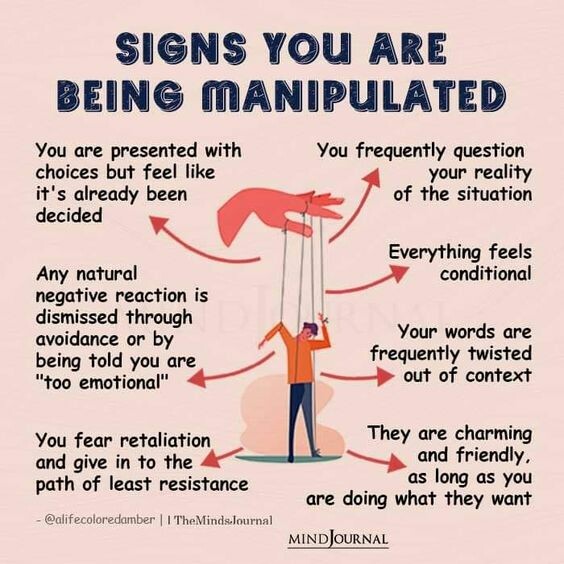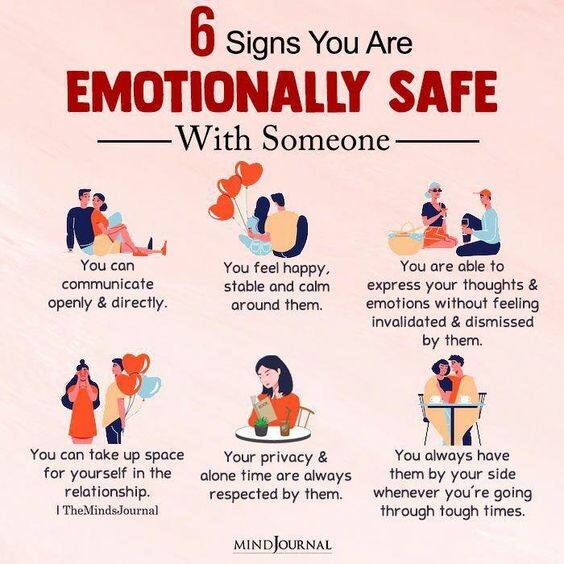3 Signs of an Unhealthy Relationship Dynamic

Relationships are a vital part of life. However, as important as they are to our well-being, they can also be very challenging. Whether it’s with family, friends, or your significant other, we all hope that our relationships are a source of happiness, peace, and fulfillment.
Have you ever wondered about the quality of your relationships? While every relationship has challenges, there are some telltale signs that your relationship dynamic is unhealthy and maybe even abusive.
Here are 3 signs of unhealthy relationships that could be making you feel unsafe:
1. Lack of Respect
Relationships are built on the foundation of mutual respect for each other. Respect means that someone acknowledges and values you for who you are, even if they can’t necessarily relate to it personally. They recognize that you have the right to your unique personality, opinions, perspectives, and values, and they work alongside your traits to create a harmonious relationship.
A lack of respect in a relationship could look like:
- Disregarding your boundaries
- Your personal boundaries are what make you feel safe, and every person has a right to have them. Denying these boundaries means that this person likely does not care about how this would make you feel and affect you negatively.
- Dismissing your feelings
- Everyone has a right to their feelings and experiences, no matter if someone else agrees or not. If you are constantly being shown or told that your feelings are “not right” or “not the correct way to react,” then this person likely lacks respect for you.
- Treating you as inferior
- While there ought to be power imbalances in certain relationship dynamics, such as parents with children or employers with employees, there is no reason for anyone to feel inferior or superior to the other. Everyone is inherently worthy and equal as a human being. We may need guidance and mentorship from those more experienced than us, but that does not mean that they should respect us any less.

2. Constant Criticism
Sometimes criticism can be good for us, especially when it is constructive and aimed to help us improve. However, there is a fine line between constructive criticism and comments that belittle us.
Unhealthy criticism can look like persistent belittling, insulting, or demeaning comments that undermine your confidence.
For example:
- If your partner is constantly complaining about how you are “wrong” with the choices that you make, such as:
- Pursuing hobbies that they don’t approve of
- How you want to dress
- Your feelings during conflicts (Everyone’s feelings are valid, even if they might not inform the best way to handle the situation. There are no right or wrong feelings, but there are right and wrong approaches to conflict).
- If your partner constantly puts you down, such as:
- Saying: “You’re such a crybaby. You only complain about things”
- Disregarding your need for affection and attention and labelling you as “needy” or “clingy.”
- Blaming you for things that go wrong and making you feel like you must “perform” perfectly in the relationship in order to keep the peace.
- Belittling your choices and preferences, following it up with phrases like: “I told you so!” or “I knew you wouldn’t make the right choice.
3. Controlling Behavior & Emotional Manipulation
People in healthy relationships should feel safe being themselves, be able and supported in maintaining their independent identity, and feel like they are able to set healthy boundaries on how they want to be treated.
This is a delicate balance that could be compromised if one partner starts to exhibit signs of control or manipulation, which can look like:
- Using guilt, threats, or emotional blackmail to get their way or maintain control over their child or partner.
- Power-tripping: When the more powerful partner uses their position against the other, making them feel like they have no choice but to appease them.
- One partner tries to control where the other goes, what they wear, or who they spend time with.

If you suspect that you are in an unhealthy relationship dynamic, The Family Centre can help. We offer relationship classes and therapy groups such as Healthy Boundaries and Effective Communication, Healthy Relationships Group for Women, and Strive: Men’s Healthy Relationship Group.
